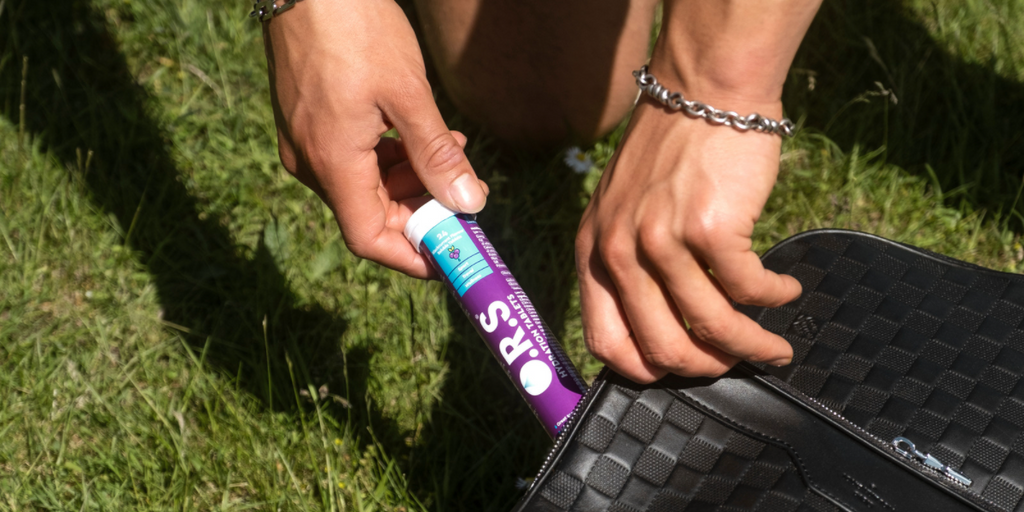Stay Hydrated

Staying hydrated is an important aspect of day to day life, however as our hectic schedules and workloads become even more overbearing it is often something we neglect, choosing to deal with the consequences later. The importance of staying hydrated becomes even more complicated when you are pushing yourself to your limits, if you are going to keep up a testing exercise regime, not just your level of hydration but what you are hydrating yourself with becomes extremely important if you’re going to keep up the pace. Today we’re looking at how hydration needs to be considered in your daily life, from your desk job to your exercise regime, so your body is getting what it needs to keep working at its best.
Reasons Why We Don’t Drink Water
Time
Have you ever found yourself stressed about something overdue at work that you don’t dare leave the desk, or so overwhelmed with rushing to get the kids packed lunches, P.E. kits, second P.E. kits for after school, Dinner ready (plus extra for the unexpected friend, who’s probably allergic to everything) that you’ve not sat down or drank anything all day? Us too, it’s so easy to neglect our own needs when we feel busy and short on time that hydration is often neglected.
Taste
Hands up if you just don’t like the taste of water? You’re not alone. After all, why would you choose to drink/eat something if you’re not going to like the experience.
Often we seek out alternatives to water that taste better, and (even if for a short amount of time) make us feel better too. Caffeinated, sugary and fizzy drinks are a go to for many instead of water. Unfortunately the effects of these drinks often are masking underlying issues such as; dehydration, sugar addiction and chronic fatigue.
Common Side Effects of Dehydration
Headaches
Depletion of water in our cells cause them to reduce in size. When this happens in our brain, the cells are literally reducing and pulling away from the skull of the brain, causing the pain we know as a headache.
Cramps
When you’re low on water, there will be less of it flowing around your body and getting to your muscle. Your body tries to prioritise vital muscles and organs such as your heart, which is why you find that muscles such as your legs start to seize up with cramp due to dehydration. Cramp can range from discomfort to immobilising pain, to overcome cramp the key is to keep moving. A few light stretches will allow your muscles to resume normality more quickly, so that you can get to treating the real cause of the cramps.
When Water Isn’t Enough
When you lose water from your body, it’s not just water that you’re losing. Electrolytes are a group of water soluble salts including potassium, sodium, calcium and magnesium, they help your body maintain the fluid balance between your blood stream and your cells, and they ensure the smooth transition of nerve impulses from your brain to your muscles. Simply put, they’re needed to keep your muscles and circulation working without problems.
If you’re really pushing yourself in your workout, are caught up in a heatwave, or unwell, water and a balanced diet might not replenish your electrolytes enough to avoid cramp or headaches. In fact, taking on more water actually dilutes what remaining electrolytes you do have within your system. This can lead to you feeling even more thirsty than before, bring on worse cramps and cause dizziness and in very serious cases, unconsciousness, in a condition known as ‘water intoxication’.
How you hydrate yourself has to mirror the level of intensity of your lifestyle. It’s important to listen to your bodies needs, if you’re thirsty, listen and act on it. If you’re in uncommon circumstances, such as travelling, battling illness and increasing your activity levels you may want to consider electrolyte supplements.
This can be done by taking supplements such as ORS soluble tablets, all the minerals needed to keep your electrolyte levels optimum for any activity. On top of this, they come in a variety of flavours which helps tackle some of the reasons we don’t drink water in the first place.
It’s important to take care of yourself regardless of your levels of activity and hydration is a great first step. If you have found yourself experiencing some of the side effects mentioned above for reasons unknown, it is important to contact your local GP as they can by linked to more serious illnesses.


